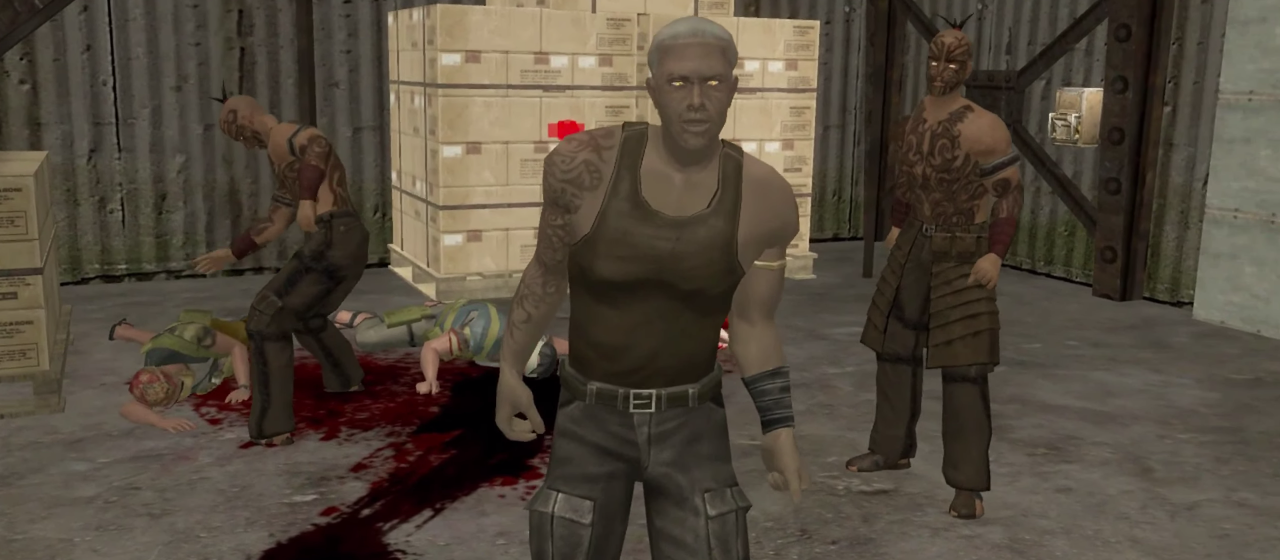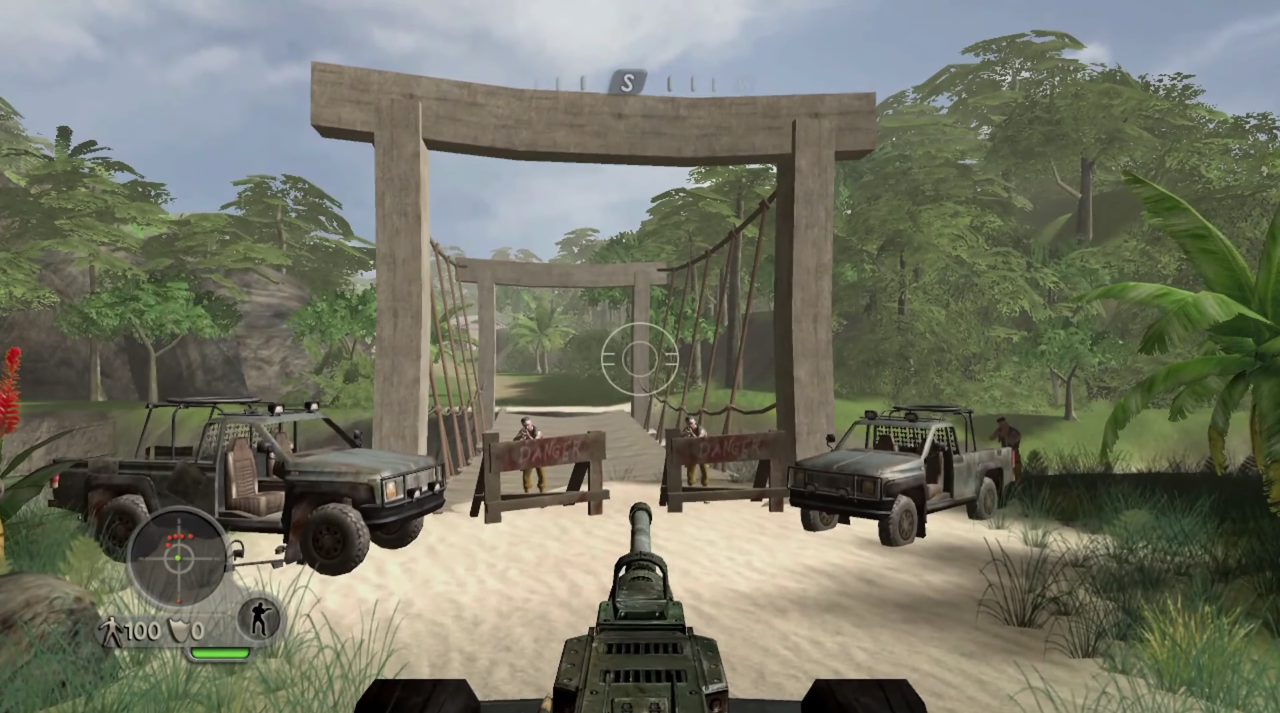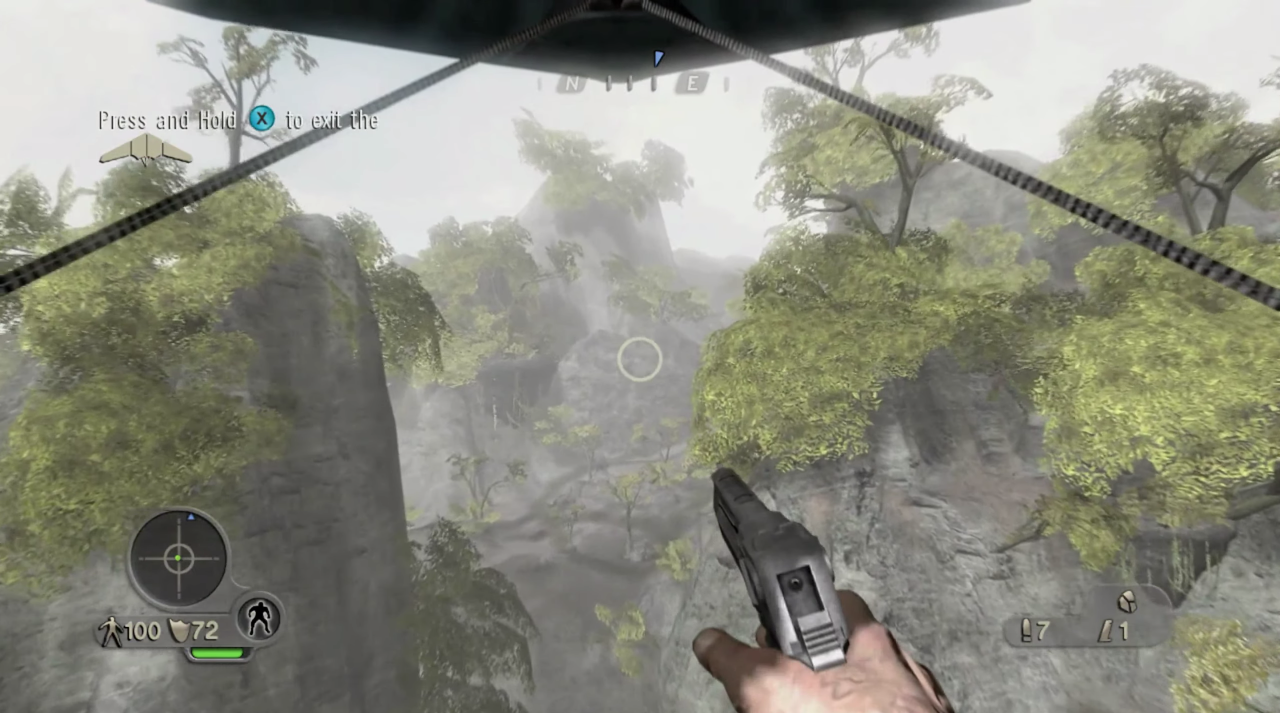

“Save your tears. In another time I would’ve done the same. It’s all too… human.”
Released barely six months after the Far Cry Instincts hit shelves, Evolution is really more of an expansion than a sequel. The game’s short campaign continues the story of Navy vet turned human-animal hybrid Jack Carver, who once again finds trouble in paradise. The varying combat tactics, an under-emphasized highlight of the first game, are the best part of Evolution as well. But the game is unsuccessful in its attempts to add new wrinkles to the formula; rather than enhancing or refining the stellar product, these features actively detract from the overall experience. It’s still a decent addition to the franchise, albeit the worst game in the series at the time of its release.
One of the most annoying changes from the first game is that various enemies respawn, a cheap design choice that forces you into a more aggressive play style. In the original campaign, strategically clearing an area was a rewarding experience. But in Evolution, you often find yourself forced to fight while moving. This means that in some tougher sections your success will often come as a fluke after a series of failures. I dislike this because it doesn’t give you a real sense of accomplishment—it just feels like you got lucky. It also ensures you’ll neglect to utilize the stealth mechanics that were so much fun in the first game. There is one section in particular, where you are trapped on a bridge with snipers spawning on the surrounding buildings and kamikaze bombers raining down on you, that was particularly aggravating.

I am not sure at what point in the development cycle of Instincts Ubisoft decided to add the feral abilities to the mix, but it was pretty clear that the levels were mostly not designed with the features in mind. Vehicles were always available for travel and only a few sections actually required the ability to long jump. So while the feral abilities made the game better, you could have played through the bulk of it without using them. In Evolution, the developers tried to integrate the abilities a little bit better, but they did so halfheartedly. There are some extremely mediocre platforming sections that are basically pointless, and the portions where you are forced to use hand to hand combat did not do much for me. On the other hand, the map layouts, so constrained in Instincts, are a bit more open in Evolutions. Specifically, the very first level—in which three separate and spread out objectives can be completed in any order—feels like a completely different game. With your objective markers situated across an archipelago with various hidden trails and waterways connecting things, it feels more like the original Far Cry than its immediate predecessor.
Another knock against Evolution, though really no fault of its own, is that the player begins the game with feral abilities. In Instincts, the player gradually receives the abilities—auto-replenishing health, brutal melee, night vision, heat vision, long jump. This gave the game a very solid sense of progression that is sorely lacking in Evolution. Along with less visually variegated level designs, this causes the campaign’s seven stages to blur together. Where in the first game your tactics were forced to change as your abilities were enhanced, allowing for more aggressive tactical decisions, here you can charge headfirst into the first encounter without a second thought.

The storyline features about the same level of cheese as its predecessor. You’re hired as extra muscle for an arms deal between a Micronesian government and some pirates. It goes bad when a third party of natives, exhibiting the same feral abilities as Jack, murder the government official and the pirate leader. If it sounds like a ridiculously excessive and tropey B movie, that’s because it is written exactly like one. This isn’t a bad thing in video games, necessarily, but it doesn’t make for a memorable narrative experience.
If Evolution would have been marketed as a bona fide sequel, it would have been a disappointment. But viewed as an expansion of a console remake sold at a budget price (it retailed for half the price of a new game at the time), it’s pretty good.